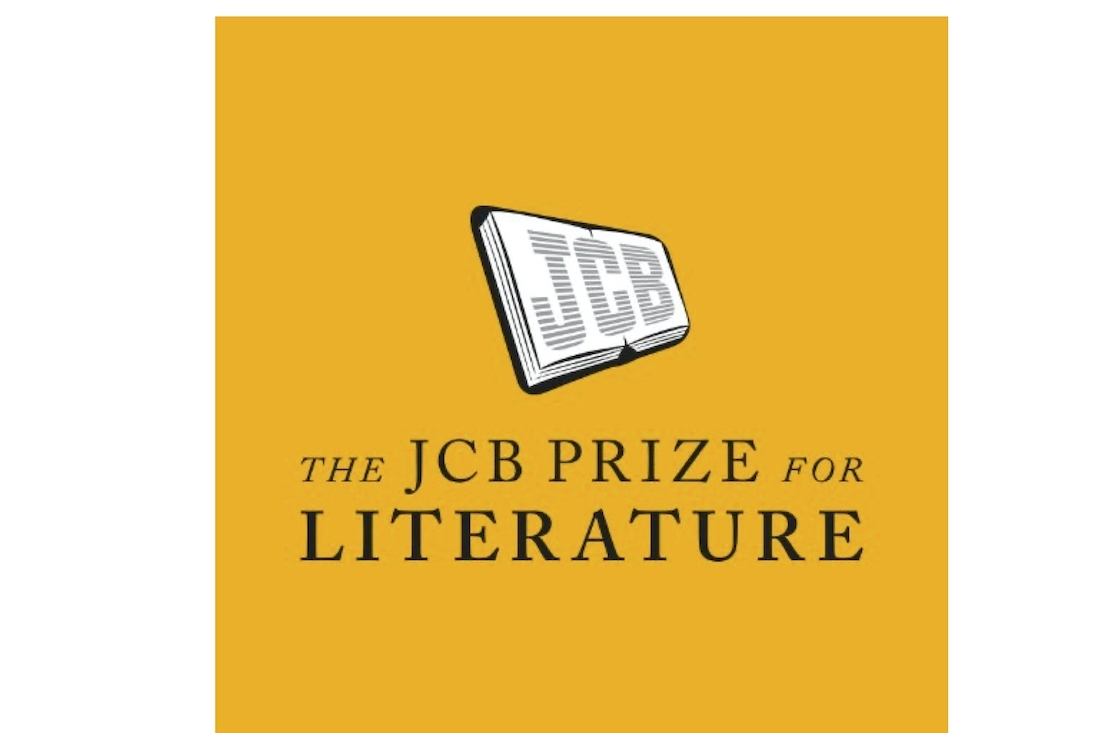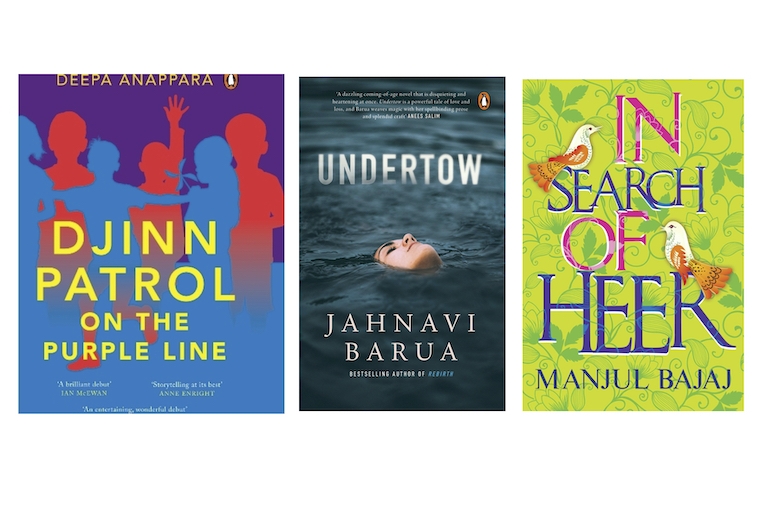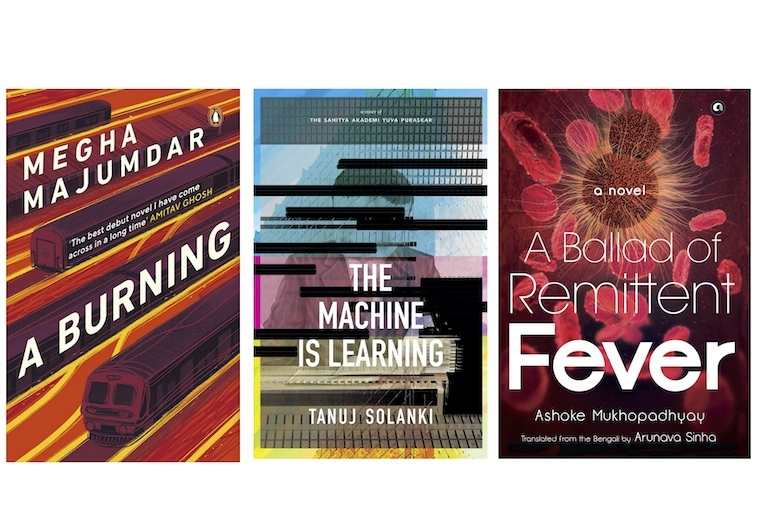

The JCB Prize for Literature was set up in 2018 to enhance the prestige of literary achievement in India and create greater visibility for contemporary Indian writing. The prize encourages translations and aims to introduce new audiences to works of Indian literature written in languages other than their own. It is funded by JCB and administered by the JCB Literature Foundation. The longlist for this year’s prize was announced today, chosen from a vast range of submissions by writers from nine states writing in five languages (Assamese, Bengali, English, Malayalam, and Tamil) published between 1st August 2019 and 31st July 2020.
The list of ten novels was selected by a panel of four judges — Tejaswini Niranjana, author and professor (Chair); Aruni Kashyap, author; Ramu Ramanathan, playwright and director; and Deepika Sorabjee, head of arts and culture portfolio, Tata Trusts. The longlist this year is dominated by women, and includes four debut novels. Two works on the list are translations (from Malayalam and Bengali). Telling us more about the selection process, Mita Kapur, Literary Director for this year’s prize shares, ‘It's been a rewarding few months, reading and debating all the submissions we received for the JCB Prize 2020. We sought out translations from as many Indian languages as possible. Apart from the established publishing houses, we reached out to new publishers in the hope of finding hidden gems. This year, with the hope of expanding the scope of the prize, we encouraged genre fiction entries along with literary fiction, and I believe the longlist reflects that. Myth, dystopia, history, romance, technology, politics and family sagas – there's something for every kind of reader.’
Presenting the entire longlist with comments by the jury:
Deepa Anappara’s Djinn Patrol on the Purple Line
A very readable and contemporary piece of fiction. A risky debut since it picks a young person, specifically a child as the voice of the novel. While we do not take the investigation seriously, since it’s children trying to solve a mystery, we as readers feel equally helpless at the unfolding events. The book bristles in places – taking you inside a forgotten universe without any self-pity.
Manjul Bajaj’s In Search of Heer
Very lyrical and evocative writing! It’s a known story mixing fact and fiction, giving an interesting third option of love. This novel has achieved a big feat by sustaining our interest in a story that is already placed in the collective memory of people. The way the author involves the non-human world makes this book a fascinating read. Bajaj has managed to give us a story of hope in these bleak times.
Jahnavi Barua’s Undertow
A perfect example of haunting storytelling! This novel is a depiction of life in a house beside an angry river in north-eastern India – a glimpse into the lives of a contemporary middle-class family. Without ever mentioning loneliness, the author brings loneliness to the foreground, leaving the reader with a very healthy quest of wanting to know more.

Samit Basu’s Chosen Spirits
This smartly written novel takes us into the complicated lives of its techno-social characters, departing from dystopian tales by not showing us a completely bleak future. The novel is strong on character development and has a fascinating plot. This wistful tech folklore seamlessly brings the contemporary into the future, creating a world we can all believe in.
Dharini Bhaskar’s These, Our Bodies, Possessed by Light
An unconventional family of women illuminate this lyrically unfolding narrative. Juxtaposing styles deftly, poetry, film and art, build a vivid montage that memorably takes one on a magical deep dive into the circumstances and choices made in their lives, across geographies and generations.
S. Hareesh's Moustache
A fluent translation of S. Hareesh’s Meesha, Moustache is an amazing feat of maverick novel writing. An immersive experience of the highlights of the Kuttanad region’s history, it lays out – through the story of its marvellous characters - the intricate social history of Kerala. Brilliantly told and evocative, and epitomising everything we stand for, Moustache is a story that needs to be heard.
Megha Majumdar’s A Burning
A visually delicious, fast paced and propulsive narrative, this novel takes risks with both its voice and its themes. The naivety amongst the characters is deliberate, leading to dangerous consequences— just like the people we see around us. Majumdar doesn’t use a literary voice; it’s a heightened shrill tone playing out like a falsetto. There is a suspense that engulfs the book, bringing out the small steps that lead to massive changes in people’s lives.
Ashoke Mukhopadhyay’s A Ballad of Remittent Fever: A Novel
A sprawling panorama of a book. Covering a span of 100-odd years from the late 19th to late 20th century, this novel about medicine, modernity and medical heroism resonates with the times we are in. It acts as a voice of sanity amidst COVID-19 and the pandemic life. History has repeatedly told the world that such medical heroism is equated with white people but this narrative challenges that.
Tanuj Solanki’s The Machine is Learning
An interesting look at what happens when certain kinds of technology are controlled by a few. This novel is a deep dive into the world of Artificial Intelligence and the lives of the people around it. It takes us into an algorithmic, contemporary universe, all the while shedding light on the social implications and consequences of something so overarching in our lives. Tanuj Solanki takes up the very tough task of writing in present tense constantly and does it with ease.

Annie Zaidi’s Prelude to A Riot: A Novel
A very quiet novel that demands attention; it burns slowly as it takes us to the climax! The main event is transpiring off stage in this novel. With its many sharp insights into how people turn against those they have known for a very long time, Prelude to a Riot is filled with a sense of foreboding. Annie Zaidi takes the risk of adopting a very unusual narrative style and succeeds. The novel doesn’t infantilise the reader. It expects us to do the hard work.
Giving us some more insight into the reading and selection process, the jury tells us, ‘As we read through the large number of entries for this year, we established a comparative framework for evaluation which included these criteria - the texture, the plot of the narrative, how compelling the book was, its readability, the point of view of the characters and if the language of the character matches that point of view. The longlisted books this year do bring out the distinctive voice of each character and tell tales that are imaginative and powerful. The 2020 longlist provides us with fresh insights into the contemporary world we live in even if some of them are set in historical times. At the end the issue that remained with us during our final discussion was that of memorability. Whether it was the memorability of the plot itself, the memorability of the writing or that of the characters, which of these books do we remember?’
The jury will announce the shortlist of five titles on 25th September. The winner of the Rs 25- lakh JCB Prize for Literature will be announced on 7th November. If the winning work is a translation, the translator will receive an additional Rs 10 lakh. Each of the 5 shortlisted authors will receive Rs 1 lakh; if a shortlisted work is a translation, the translator will receive Rs 50,000.